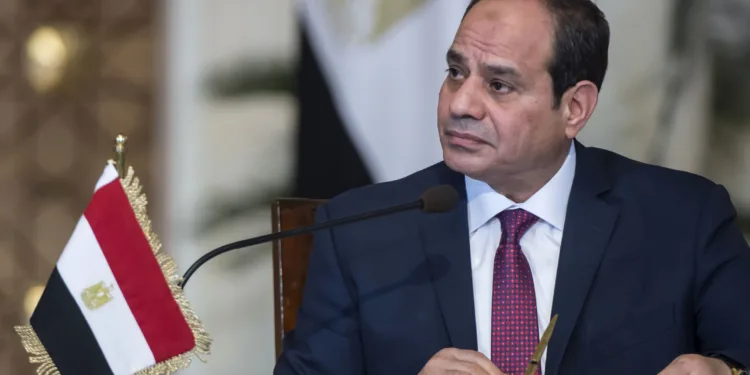Egypt has embarked on a partnership with the European Union as they receive $8 billion due to economic instability and pressures from neighbouring countries for migration.
Abdel Fattah el-Sissi, President of Egypt met earlier with the European Union President, Ursula Von der Leyen to discuss the partnership sparked a lot of criticism.
The significant partnership deal was signed with the presence of leaders from Belgium, Italy, Austria, Cyprus and Greece.
Speaking to the European leaders at the signing ceremony, El-Sissi emphasized the paradigm shift in the economy with the financial aid, “Your visit today represented a very important milestone in the relations between Egypt and the European Union.”
This financial aid is coming after Egypt received a five billion dollars ($5 billion) IMF loan earlier this month, adding up to eight billion dollars ($8 billion) from the previous loan.
FinTech Telex recalls that the new agreement represents an extension of the $3 billion, 46-month Extended Fund Facility initiated by the IMF with Egypt in December 2022.
The comprehensive aid package unveiled by the European Union spans three years and is designed to provide substantial support to Egypt, which stands as the most populous country in the Arab world.
Also Read: Egypt Secures Additional $5bn Loan from IMF
How Will the Aid Help Egypt?
The aid package, as detailed by the EU’s mission in Cairo, comprises a combination of grants and loans aimed at bolstering the country’s economic stability and fostering sustainable development.
A significant portion of this financial support, totalling $5.4 billion, is allocated for macro-financial assistance. This crucial funding is intended to address pressing economic challenges and bolster Egypt’s financial resilience amidst the evolving global economic landscape.
The aid package underscores the EU’s commitment to partnering with Egypt to navigate economic uncertainties and promote long-term prosperity for its citizens.
In a comprehensive statement released by the office of the President, it was highlighted that the recent agreement, known as the Joint Declaration, represents a pivotal milestone in fostering enhanced cooperation and coordination between the respective entities.
The overarching goal of this accord is to facilitate a substantial leap forward in advancing mutual interests and shared objectives.
Central to the Joint Declaration are key pillars aimed at promoting democratic values, fundamental freedoms, the protection of human rights, and the advancement of gender equality.
These principles underscore the commitment of both parties to upholding essential rights and fostering an inclusive society that prioritizes equity and justice.
Moreover, the European Commission, in its delineation of the agreement, emphasized that the scope of collaboration extends beyond fundamental values to encompass critical areas such as migration management and counter-terrorism efforts.
Through deeper cooperation and strategic alignment, both sides seek to address the multifaceted challenges posed by migration dynamics and the persistent threat of terrorism, aiming for comprehensive and sustainable solutions.
The Joint Declaration thus represents a comprehensive framework that not only reaffirms shared values but also paves the way for strategic collaboration on pressing issues of regional and global significance, ensuring a coordinated approach to address complex challenges and pursue common interests.
The European Union has announced a comprehensive aid package aimed at bolstering Egypt’s government efforts in securing its borders, particularly along the frontier with Libya.
This region has emerged as a significant transit point for migrants seeking refuge from poverty and conflict in various parts of Africa and the Middle East.
As part of this aid initiative, the 27-nation bloc is committed to providing substantial support to Egypt in managing the influx of migrants, with a specific focus on assisting the government in addressing challenges related to hosting Sudanese refugees.
This comes against the backdrop of nearly a year of intense fighting between rival factions within Sudan, prompting a substantial number of Sudanese nationals to seek shelter in neighbouring countries, including Egypt.
According to recent data, Egypt has welcomed over 460,000 Sudanese refugees since the onset of these conflicts in April last year.
The EU’s assistance is designed to alleviate the strain on Egypt’s resources caused by the influx of refugees and migrants, ensuring that adequate support and resources are available to meet their humanitarian needs effectively.
By extending support for border fortification and refugee hosting, the EU aims to strengthen Egypt’s capacity to manage migration flows more efficiently while also addressing the humanitarian needs of vulnerable populations.
This collaborative effort underscores the EU’s commitment to fostering stability, security, and solidarity in the region, as well as its dedication to upholding humanitarian principles and promoting sustainable solutions to migration challenges.










